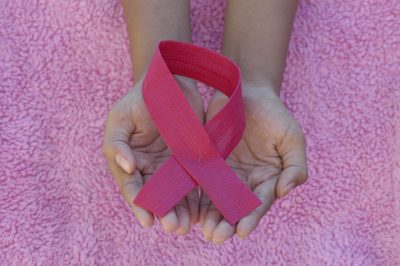Cancer is a word that can send a chill down your spine whenever spoken. Breast cancer occurs when cells in the breast tissues replicate in an uncontrolled manner thereby causing a tumor. It is one of the leading causes of death among women of reproductive age. Abnormal growths in or around your breasts or armpits, abnormal (bloody) discharge, random pains or skin irritation, change in breast size or shape, flakiness or redness around the areola; these are warning signs of breast cancer that, if noticed, need to be dealt with as soon as possible.
Causes of Breast Cancer
The cause of breast cancer is idiopathic but there are some factors that can predispose you to cancer;
-
History with Cancer
People with a history of breast cancer or any type of cancer are likely to have a recurrence. The thing with this condition is that it always tries to come back even after remission.
-
Genetic Factors
If you have any relatives, say your Mom, your sister, or your grandmother, with a history of breast cancer, there is a chance you could face it eventually as well.
-
Age
Research has it that the risk of having breast cancer increases as you get older.
-
Lifestyle
The type of lifestyle you live determines the quality of your health. If you are an alcoholic or an ardent smoker, you have a higher tendency of developing breast cancer. In the same vein, if you lead a sedentary lifestyle where you do not engage in many physical activities, you are also at a higher risk than average.
Important Facts Every Woman Should Know About Breast Cancer
-
Develop A Relationship With Your Breasts
Every woman should develop a special connection with her breasts such that if anything seems out of place, she would know. In other words, know your breasts, know what the healthy norm of your body feels like and be aware of any unusual discomfort.
Sadly, most of us are not that connected to our own bodies nowadays. You will be surprised by how little the majority of women know about their breasts, down to their correct bra size; in fact, you are probably wearing the wrong bra size right now. Don’t sweat it though, you just need to find access to a bra fitting specialist. You can find them at lingerie stores, more than willing to help you choose the right size for you.
-
Early Detection is Key
It is recommended that every woman, starting the age of sixteen, perform a self-breast examination every month; especially a few days after their menstruation when the breasts are less sensitive. This is done either in bed or while standing in front of a mirror. You put one hand above your head and use the other hand to examine your breast and check for lumps, abnormal discharge, or unusual sensitivity.
Depending on your location, you need to ask around or do your online research; find out how you can get in contact with the highest-rated cancer detection centers and schedule periodic checkups. Getting examined by professionals would give you a more comprehensive understanding of your body’s condition; practitioners at the breast cancer center in Los Angeles swear that monthly checkups are instrumental when it comes to early detection and controlling any occurrences. These measures are targeted towards detecting breast cancer in time and curtailing its spread before it metastasizes.
-
Your Genes Play A Huge Role
There are certain genes that help lower the risk of breast cancer and many other types of cancer. BRCA1 and BRCA2, when they are normal, act as tumor suppressors, preventing the cells from dividing rapidly and aggressively. However, there could be an alteration in these genes, a mutation, that could make them act abnormally and increase the risk of developing cancer rather than suppress it.
-
It is Not Age Specific
There has been a myth that older women are the only ones at risk of developing breast tumors. However, young women are also at risk. While old age does contribute to higher risk, the aforementioned predisposing factors and genetic mutations could make a younger woman more vulnerable.
-
The Density of Your Breasts Matters Too
Dense breasts mean less adipose tissue and more fibrous or glandular tissue, which is not a good thing considering it makes it difficult for a mammogram to detect an abnormal breast tissue or tumor during an examination.
The reason why some women have dense breasts is still unknown but findings have shown that younger women tend to have less fatty tissue in their breasts. In addition to this, women with low body mass index are likely to have more dense breasts. As for women on hormonal therapy post-menopause, they are also susceptible. In situations like these, digital mammography, ultrasound, or MRI are your best bet in detecting any cancerous cells.

Breast cancer is one of the deadliest diseases affecting women. It is, however, not a death sentence, particularly with the advancements in medicine – known as oncology– the rate of morbidity has plummeted over the years.
